LiA Weekly Log: Week 1
What went well?
(The progress I made; what was achieved and done)
I was unable to hash out the specific details of my Leadership in Action (LiA) project prior to arriving in Kenya, this was predominantly due to constraints on my end (time, workload, personal), the program coordinator here in Kenya being on vacation, and the more ‘go with the flow’ less premeditated style of my NGO destination Better Me. Instead, it was understood that I would arrive, partake in Better Me’s regular initiatives and then find an area of need, suitable to my skill set, that would become my LiA initiative. While this arrangement did not fit the Laidlaw program’s convention, I was okay with it because I value flexibility and meeting the challenge of the day.
Since arriving I believe I have been successfully adapting to Better Me’s various initiatives. The initiatives I am most involved in are the Remand Home, St.Williams school, and swimming lessons at the Korando Educational Centre. The Remand Home is a facility operated by Kenya’s Department of Child Services. It is home to approximately fifty children (individuals 18 and under), the vast majority of which (approximately 45) are in conflict with the law. These children are either awaiting their day in court or sentencing. The most common offense is theft. A handful of children are at the home for protective services, ie. because of troubles with their parents or guardians. Better Me works with the Remand Home because the NGO and current Remand administrators believe that it is important not to deprive children of their right to be children and to enable them to succeed in life regardless of their current circumstances. That is to say, from what I’ve gathered the home has historically been, in view and name, a temporary detention centre however the current administrators seek to change the culture of the centre to be more of a home; it is not being run as a place to hold children and write them off as criminals. In pursuit of this goal, other Better Me volunteers and I attend the home three days a week, twice to provide English lessons and once to provide general life skills aimed at helping the children succeed and unleash their potential later on. Where I feel I have found success is in supporting the initiative to treat the centre as a home and place for development and tailoring lessons and behaviour accordingly. I think it is fantastic to provide opportunities to children regardless of actions taken in the past and do what we can to set them up to succeed later in life and avoid making the same decisions as they previously have.
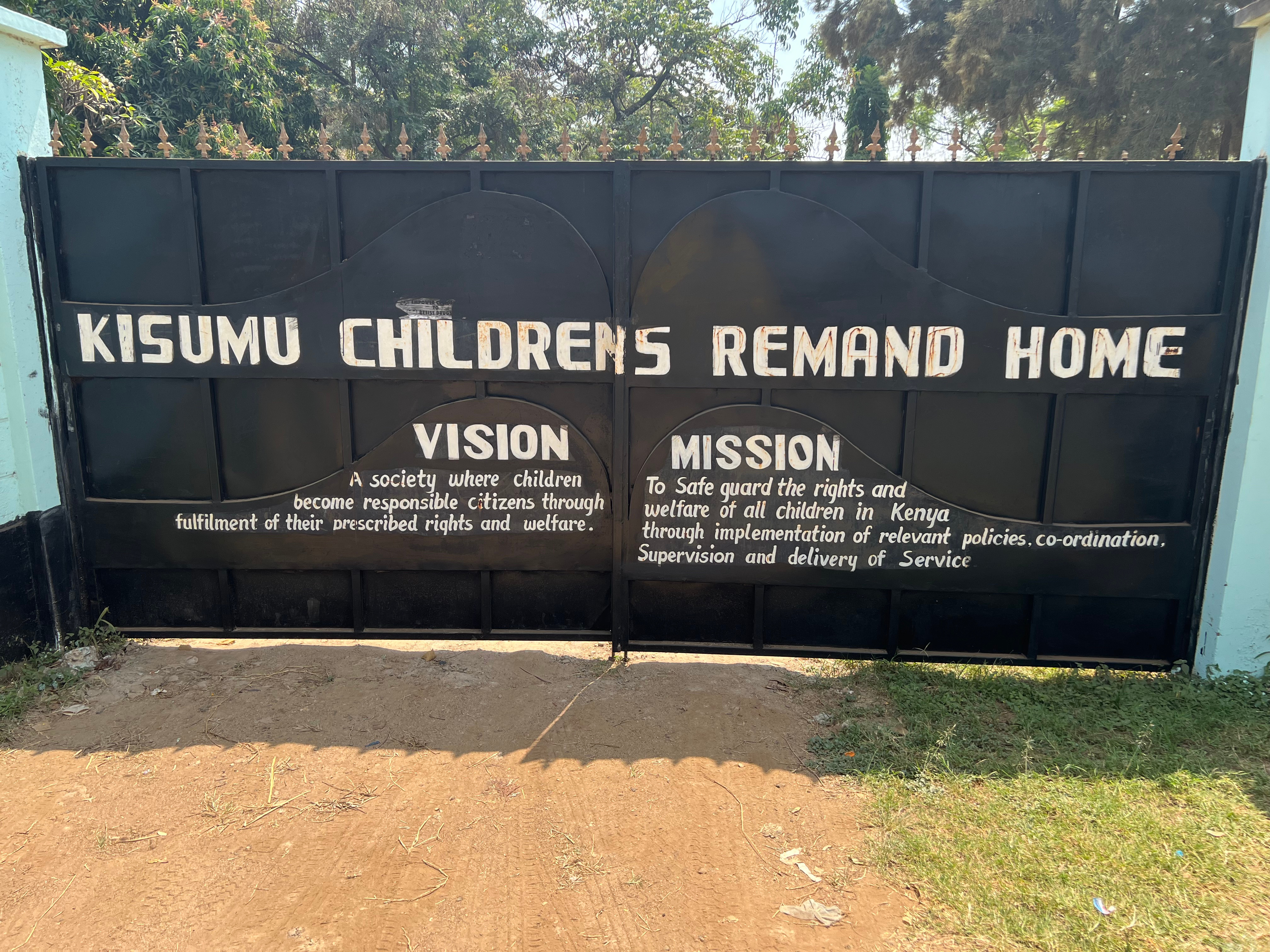
The second initiative I am closely involved with is the St.Williams School. Once a week we attend this school to give them the general life lesson previously given to children at the Remand Home. So far, the two life lessons I’ve taught were about fear (what it is, it’s normal, causes for fear, ways to handle fear, the benefits of confronting your fears, etc…) and truth (what is it, why is it important, why do people lie in spite of the virtues of telling the truth, alternative options to lying / how to navigate various situations, and more). Between giving the lesson at the Remand Home and then at St.Williams I usually expand upon the topics at hand and incorporate observations made from giving the lesson the first time, such as the lesson ought to be more engaging for the children, [blank] worked well but [blank] was less successful, how can we challenge the kids, and how can the message be adapted to resonate more with the kids. The latter question represents what I think has been the most fascinating and important task so far, one that I believe I’ve seen success in but am constantly developing. That is to say, I plan lessons as a cis-white man from small towns in suburban/rural Canada, in addition to all my existing habits, biases, and understandings. Certain stories and cultural habits do not effectively resonate with the children. Cognizant of this, I try to observe and discuss with the local Better Me team to understand the norms and broader society, discuss with the children during the lesson to understand where they’re coming from and their existing knowledge, and retroactively amend lessons. I believe tailoring lessons to the Kenyan context is essential for the children’s growth as well as respect and courtesy. A few examples of these adjustments are:
- Kenya is a very overtly Christian society. As a result, while I tend to write lessons from a secular perspective, I then revise them and implement Christianity where appropriate. For example, when discussing truth with a group of children I came prepared with Exodus 20:16, Leviticus 19:11, and Ephesians 4:25 written down.
- Discussing the current turmoil in the country is something I thought would be taboo and intended to shy away from with both my colleagues and especially the children. However, I have learned that people are very open to discussing the situation, providing both their thoughts and the views of other parties (the international media, consensus, niche groups). Further, I have observed my colleagues reference current figures and events in lessons when appropriate to make connections for the children. I intend to navigate this very slowly and err on the side of caution whilst remaining cognizant that current events remain a tool in my teaching toolbelt.
- Tailoring lesson delivery to the Luo context. Kisumu is a predominantly Luo area, thus I’ve been trying to pick up words here and there as well as certain speaking patterns to make the lessons feel more familiar and digestible to the children. Further, when telling stories some details are changed for the Kenyan context. When discussing truth with the smaller children at the Remand Home, I told them about the Boy Who Cried Wolf, however “wolf” was changed to “lion” as the kids did not know what a wolf was.
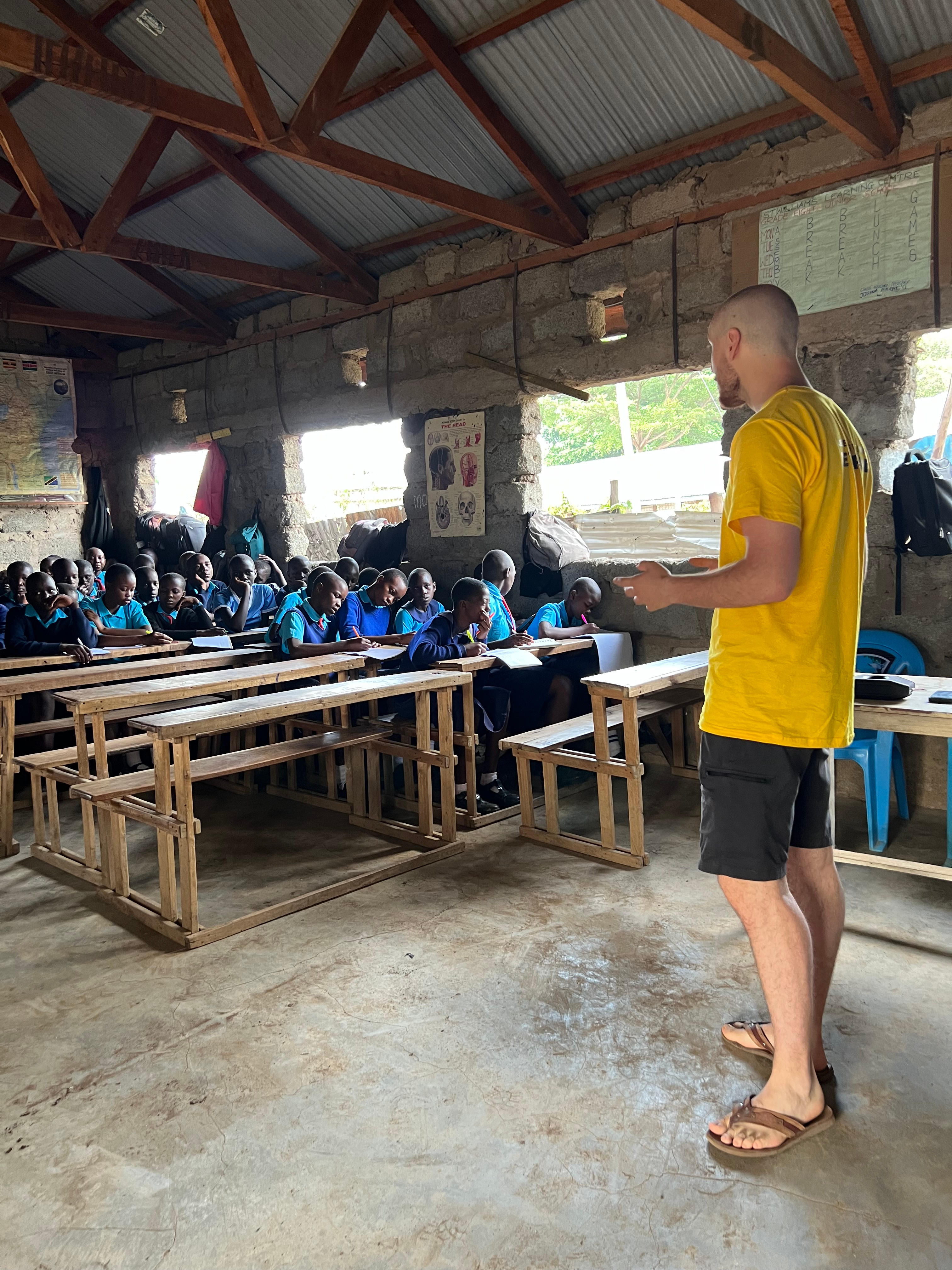
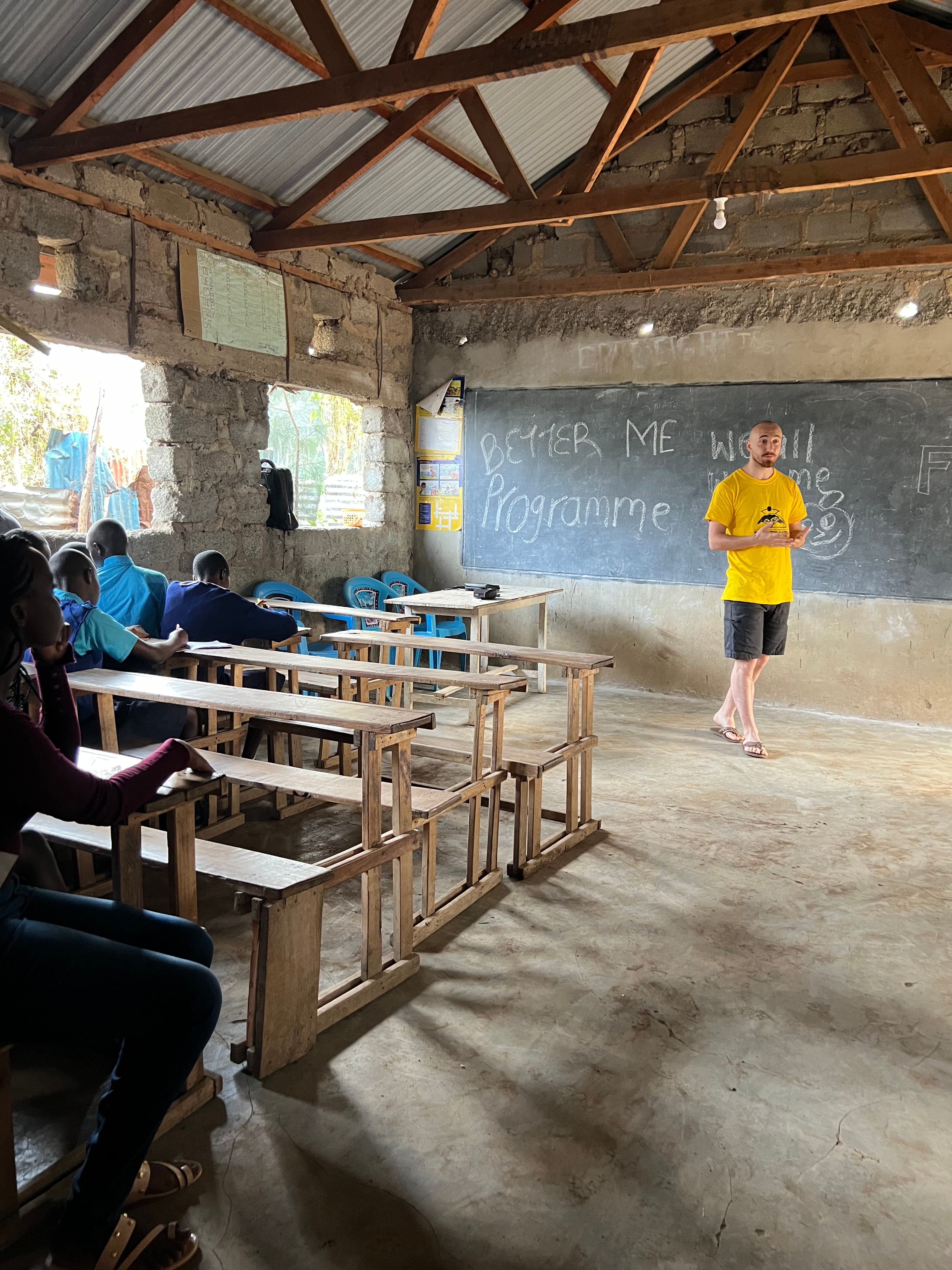
I look forward to continuing to familiarize myself with the society and culture and improve lessons accordingly.
The final area I believe I’ve seen notable success is in landing on a larger independent project for my LiA. In addition to contributing to the aforementioned Better Me initiatives (and others not mentioned), I will be facilitating a new partnership for Better Me with the Mama Ngina Children's Home, a home for babies abandoned at birth and orphans with physical and/or mental disabilities. Over the duration of my stay, I will work with the Mama Ngina team and the Better Me team to figure out how Better Me can most effectively aid Mama Ngina’s operations.
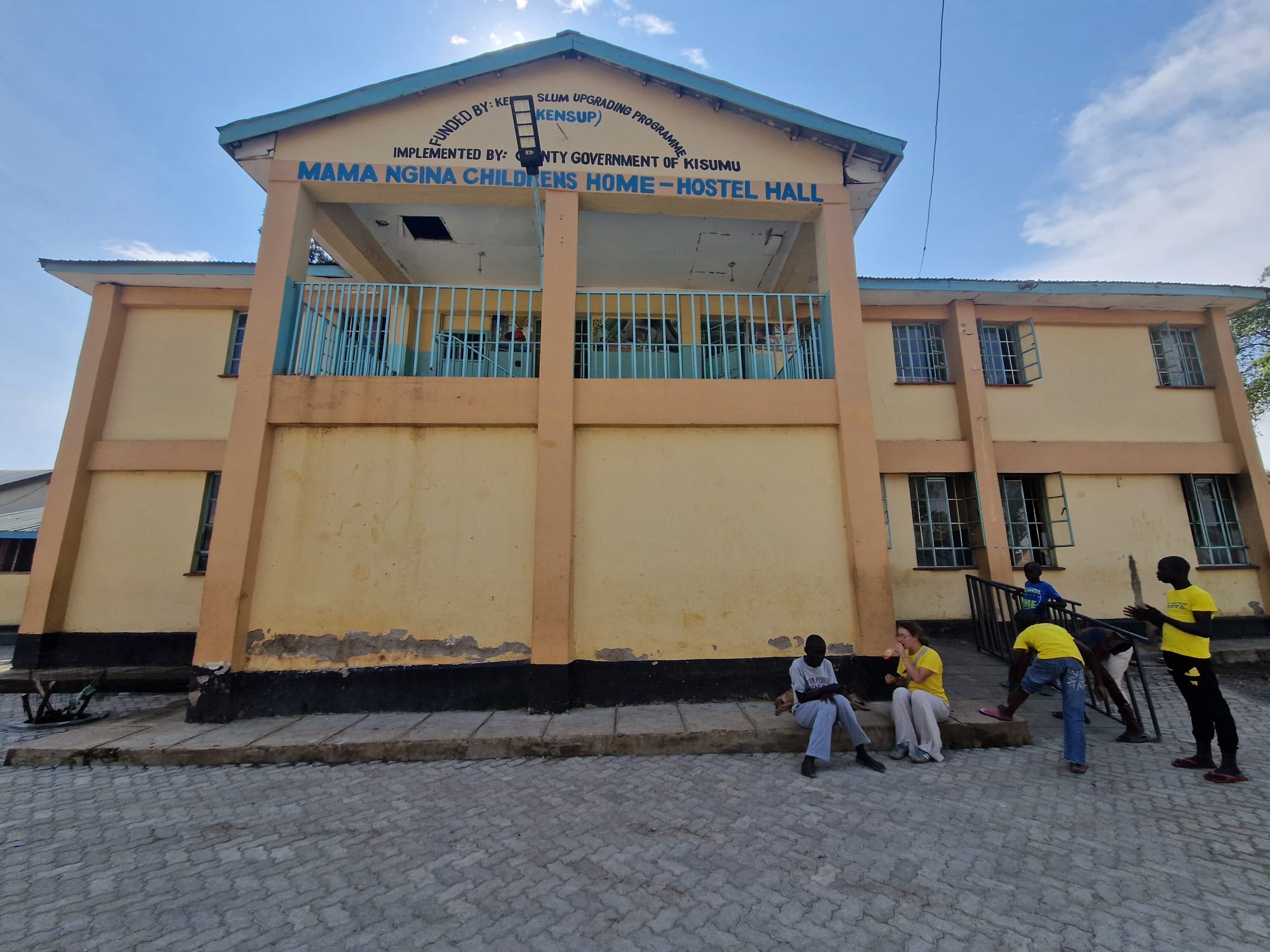
What could have been done differently?
(Things that did not get done and/or could be changed)
Of course, the most evident thing that could have been done differently would have been to premeditate my facilitation of the Mama Ngina partnership. However, the more interesting challenges I’ve faced this first week were disruptions to work. In the short term, I had stomach issues for a few days that made it impossible to keep food down. Thankfully, the issues have cleared up after a visit to a Kenyan emergency room and receiving some medication for gastritis. Issues that I expect to be perennial during my stay are wifi outages (usually a couple of hours every other day) and the civil unrest resulting from the national government’s finance bill and response to protests. The wifi outages disrupt workflow, sometimes interrupting lesson planning or research but are rather trivial in the grand scheme of life. The civil unrest occurs in regularly scheduled demonstrations (each Tuesday and Thursday). The scale and disruption caused by the demonstrations fluctuates so we can occasionally carry out our initiatives as planned (travel to the Remand Home, St.Williams, elsewhere). But more often than not the demonstrations ‘ground’ us for a day.
Lastly, there is a boy at the Remand home who is deaf. This poses a unique challenge as I do not have experience with deaf children. In the coming weeks, I will do research and incorporate accommodations into my lessons to ensure he receives quality instruction and is not left behind.
What did I learn about myself when working with others?
(Contributions, behaviours, and values I exhibited)
Back in Canada, I like to take the lead, I’m also loud (friendly), but occasionally quite shy. Though I am often very extroverted, this does take courage and internal pressure to assume. When coming into such a new environment (Kenya), I have been far more reserved. In group work this leads to me asserting my initial thoughts less, instead asking questions that can confirm, deny, or lead to what I’m thinking. I think this is both a result of personal preference (shyness) but also an acknowledgment of the position I’m in – a white foreigner joining a team of locals. It would be inappropriate for me to brashly come in and start asserting things. All that said, I do feel that I am meaningfully contributing to various initiatives and, of course, the partnership I’m facilitating.
Moreover, I believe I have exhibited the Laidlaw values of being good and ambitious. Each day I look for solutions, make plans, and challenge myself to be more outgoing. Furthermore, I make sure to be truthful, decent, and treat all my collaborators with respect.
What did I learn about leadership?
(Leadership attributes and insights I developed)
An insight I’ve become cognizant of is when you step into a space as a leader, teacher, or coach it’s an emotional space. The room, the audience, and the team, all have emotions and energy individually and as a collective. Acknowledging, monitoring, and adapting to this is critical. An important element of leadership isn’t just looking outwards but reflecting and bringing your A game; when you step into a room to lead they don’t know you’re jetlagged, a little underprepared, getting over illness, and challenging yourself to overcome shyness, of course you can explain this, but regardless your job is to lead without exception. This is something I’ve been developing, my ability to leave everything at the door, give something my all, and connect with the group.
On the whole, across multiple experiences, I believe I’ve demonstrated and been developing the following Laidlaw Leader Attributes:
Leadership abilities
- Able to lead without authority
- Able to convey purpose and build coalitions
- Cultural intelligence and capacity for empathy
Self-knowledge and awareness
- Honestly assesses own knowledge and leadership style/preferences
- Knows own limitations and acts accordingly
- Learns continually
Effective communicator
- Speaks and writes clearly and confidently
- Able to listen with understanding
Collaboration and team working
- Builds relationships and networks
- Works collaboratively and across boundaries
Social and cultural intelligence and awareness
- Capitalises on the power of diversity
- Able to navigate new and foreign situations
- Uses this to build relationships and networks
Resilience and determination to achieve
- Has energy and impact
Research and Project Management Skills
- Able to work and think independently
- Prioritises activities and manages own time
What do I want to develop or focus on next?
(What I still need to develop)
In the coming weeks, I will continue to develop my cultural competency, self-discipline, and ambition in order to deliver timely and high-quality outputs. In addition, I will develop a roadmap for the expected development of my LiA project.



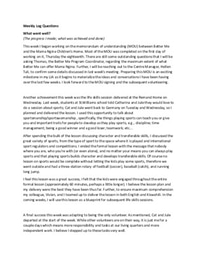

Please sign in
If you are a registered user on Laidlaw Scholars Network, please sign in